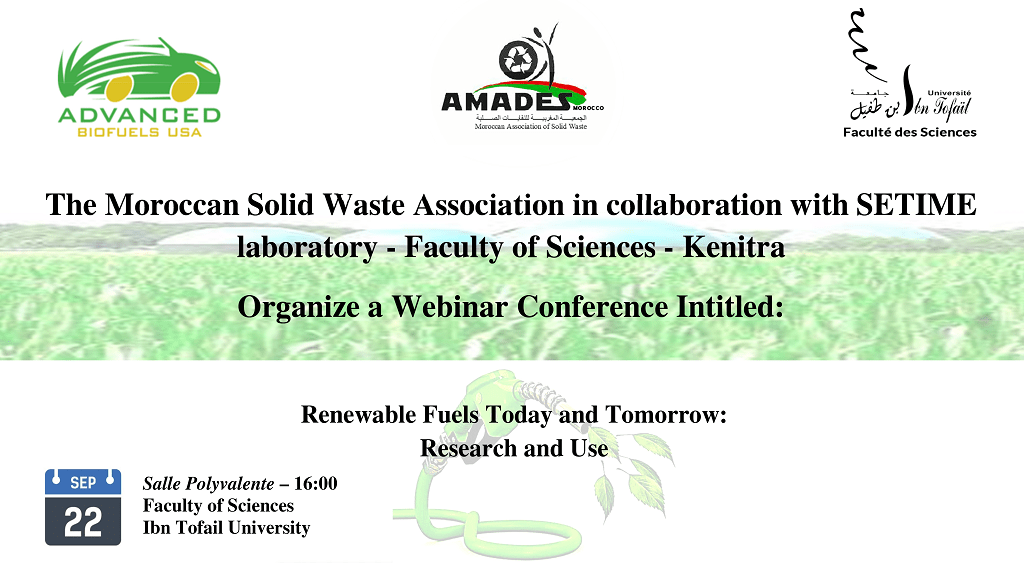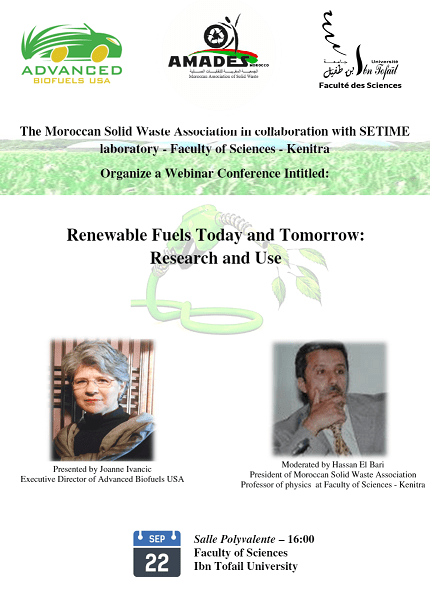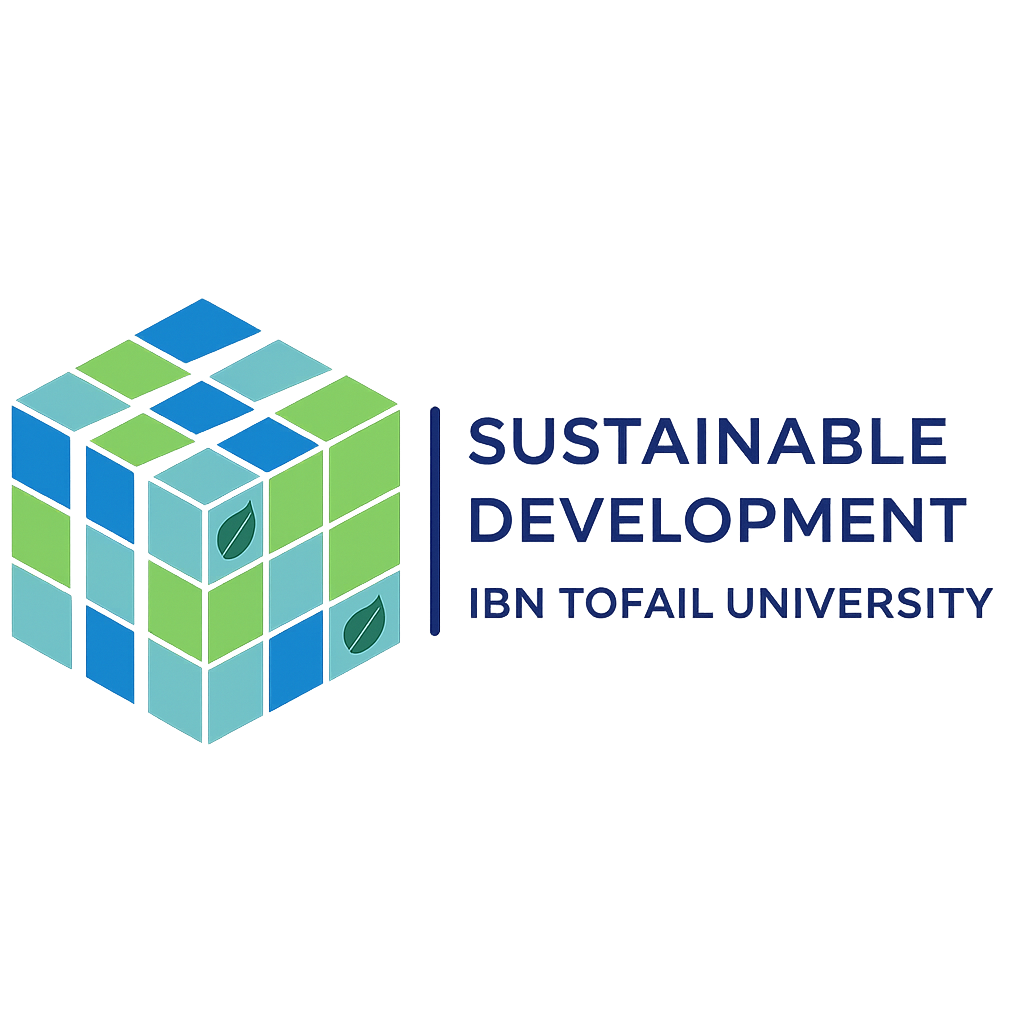
In September 2022, the Moroccan Solid Waste Association, in collaboration with SETIME of the Faculty of Sciences at Ibn Tofail University in Kénitra, organized a significant event titled “Renewable Fuels Today and Tomorrow: Research and Use.”
This event, held at the Faculty of Sciences, commenced at 16:00 and brought together experts, researchers, and enthusiasts from various fields. The focus of the event was on exploring the current state and future prospects of renewable fuels. Attendees engaged in insightful discussions and presentations regarding the latest research findings, technological advancements, and sustainable practices related to renewable fuels.
The event served as a platform for knowledge exchange, fostering dialogue on innovative approaches to harnessing renewable energy sources. Experts shared their expertise, discussing the challenges and opportunities in the field and emphasizing the importance of research and implementation in the realm of renewable fuels. The event not only facilitated networking among professionals but also inspired further research and collaborative efforts to shape the future of renewable energy usage.
Renewable fuels derived from replenishable sources also called renewable resources, naturally renewed within a human being’s lifetime.
In contrast to finite fossil fuels like coal, oil, and natural gas, which harm the environment and worsen the issue of climate change, renewable fuels provide a sustainable, eco-friendly alternative.
Various kinds of renewable fuels exist :
- Biofuels,
- Wind Energy,
- Solar Energy,
- Hydropower,
- Geothermal Energy,
- Tidal Energy,
- And hydrogen (H-1, H-2 or H-3)
Renewable fuels play an essential role in reducing greenhouse gas emissions, mitigating climate change, and transitioning toward a more sustainable energy future.
Rationally using renewable fuels involves adopting sustainable practices and making conscious choices to maximize their benefits while minimizing negative impacts.
Here are some ways to use renewable fuels in a rational way :
- Improve energy efficiency by reducing overall energy demand and making the most of the available renewable energy,
- Promote Training, education and raise awareness
- Integration with the smart grid,
- Develop and implement energy storage,
- Government policies favoring renewable energy and discourage the use of environmentally harmful alternatives
- Investing in research and development (R&D),
- Encouraging community engagement and partnerships in renewable energy projects,
- Industrial and Commercial Adoption of renewable energy and setting an example for companies and suppliers to reduce carbon footprint,
- Promoting electric mode of public transportation,
- Converting organic waste to biogas or biofuels (Waste-to-Energy methods),
- Continuous monitoring and assessment the impact of renewable energy projects,
- Ensuring economic and social benefit of renewable energy on communities.
By combining these different strategies and ideas, societies and also communities can rationally use the different renewable fuels, making a positive impact on the environment, economy, and overall the quality of people’s life.

